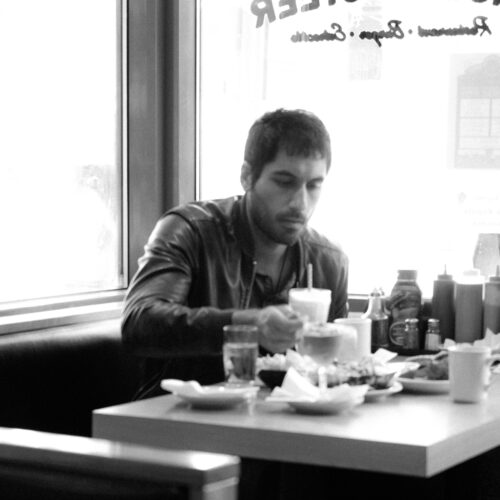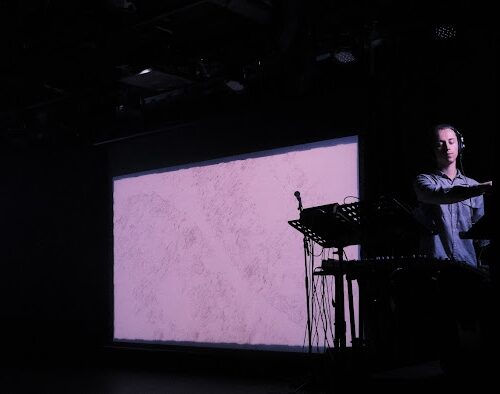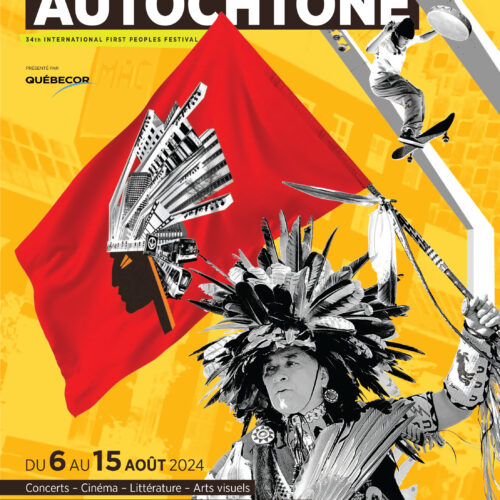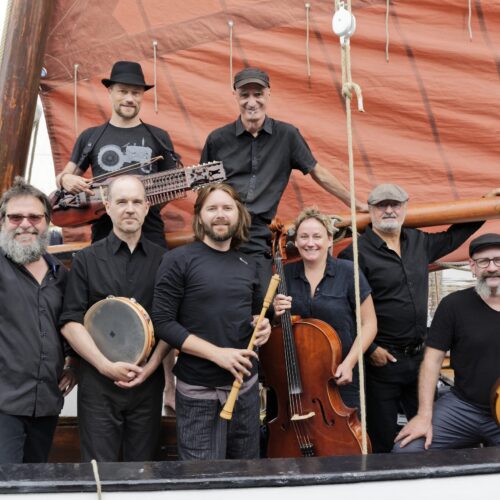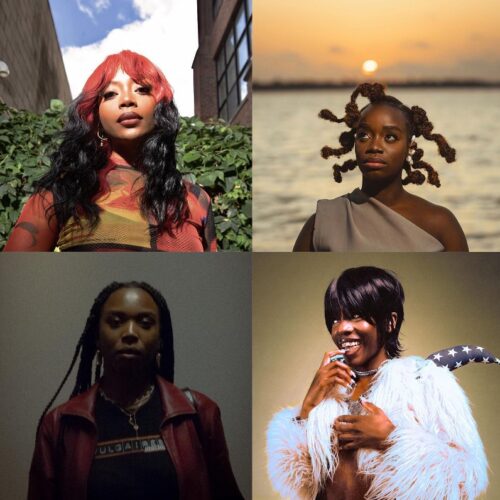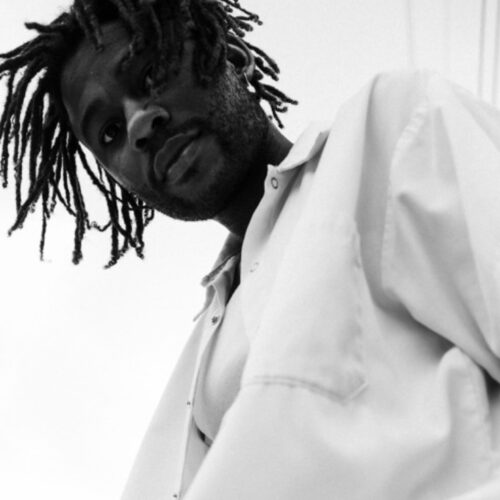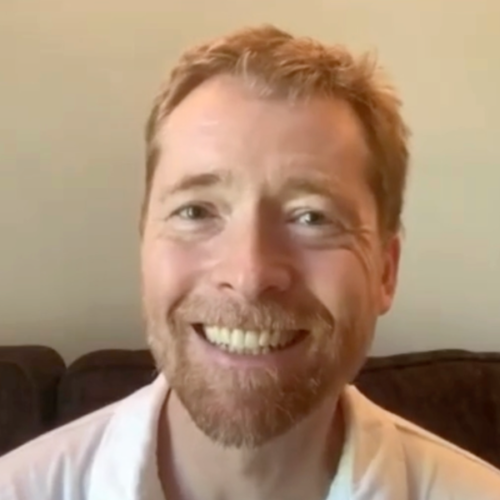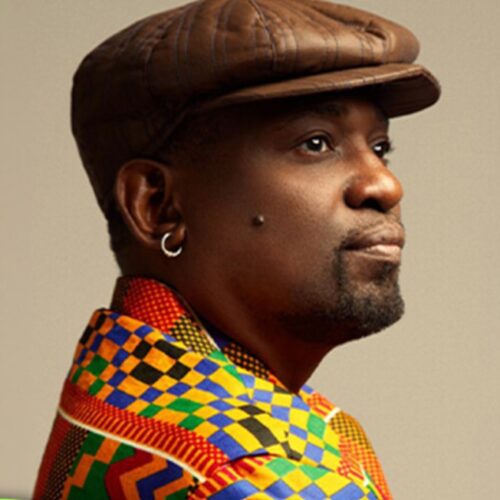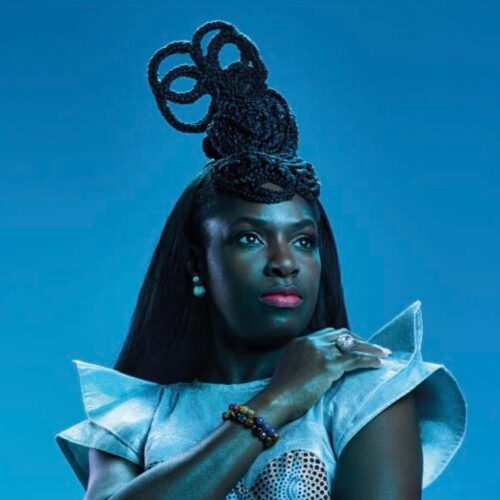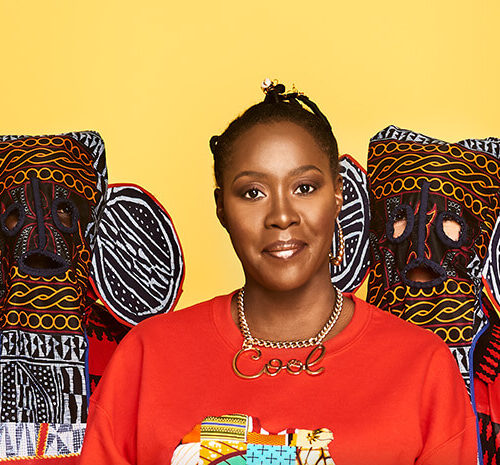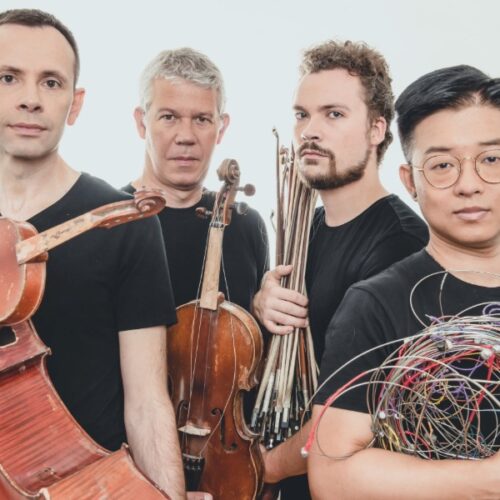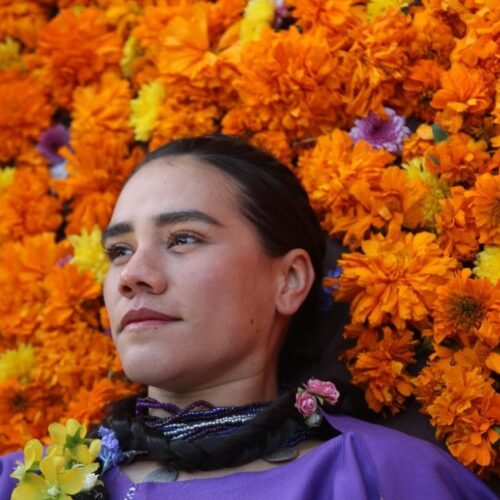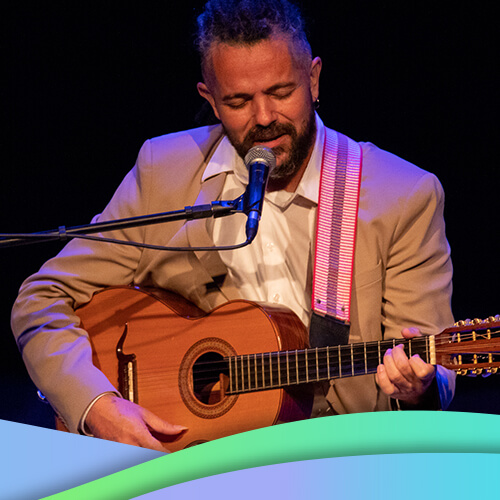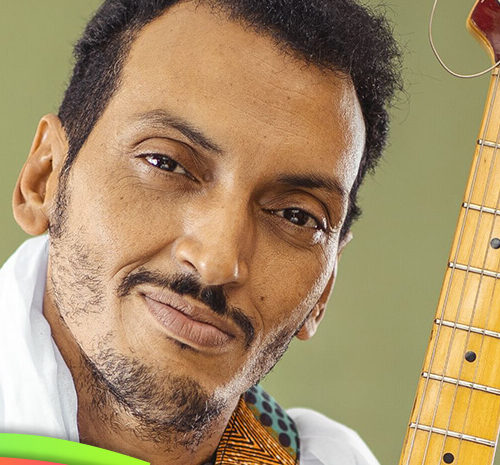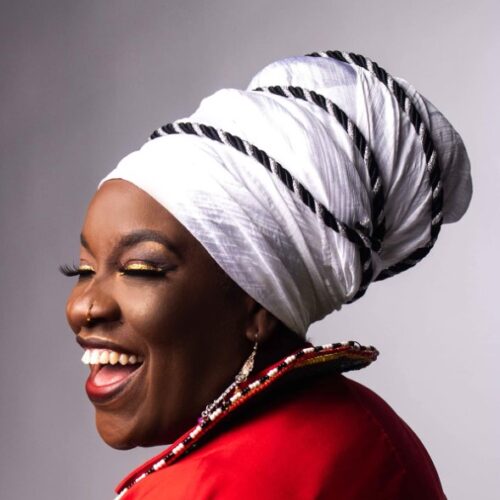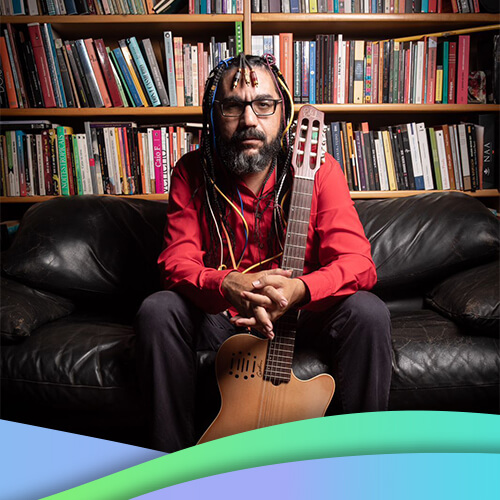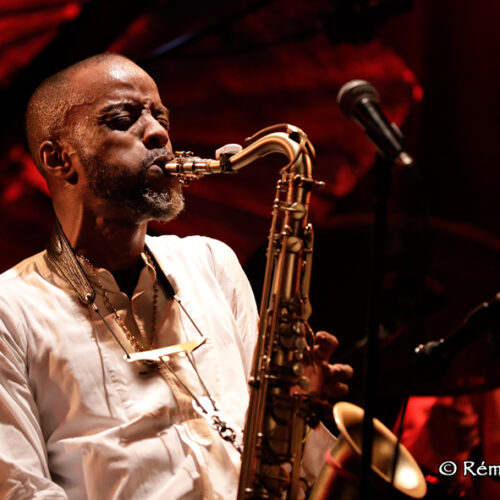Additional Information
A rising star on the Canadian West Coast, trumpeter, multi-instrumentalist, composer, improviser and bandleader Feven Kidane is coming to the Casa Del Popolo this Wednesday for a meet and greet with the Suoni Per Il Popolo audience. PAN M 360 noticed her among the many programs of the festival. Her openness to modern jazz and to many other musical styles. Here she talks about her Ethiopian heritage, her deep love of music, her versatility, and her perspective on jazz as a woman of African descent.
PAN M 360 : So you started with a harmonica left by your father and it led you to professional music. What was your state of mind as a child, music wise?
FEVEN KIDANE : As a child, I was surrounded by music always, whether in my head or playing aloud in the car, my room, my parents record player, the TV, you name it. From the age of four I knew I wanted to be a musician (though that took several turns, first starting with wanting to be a singer, then a piano player, then « an electric guitarist », a bass clarinetist with the Vienna Symphony Orchestra, etc). I will say that I have always struggled in making up my mind, so I suppose it would only make sense that I would be jumping instruments. I was mostly tinkering on anything that would make sound, starting with that harmonica. There was always a feeling that I was onto something, and I realized probably around the age of six that I had a gift. It feels so weird to say that about your childhood self as an adult, but I truly thought at that age that I would be selling out world tours and recording award-winning albums. Through all of the instruments I cycled through as a child, I always had my voice in the midst of it all. I remember trying to copy autotune from music videos I saw on TV in the second grade and absolutely losing it when I nailed a line with my voice. Back then I had no idea what autotune was of course, and I thought that all artists were fantastic singers (boy, was I wrong!)
Music, though, has always lived inside of me. Some of my earliest memories are of intentionally trying to make music.
PAN M 360 : I could read that you love Lee Morgan, Wayne Shorter, and Ahmad Jamal. Can you add something about those preferences in modern jazz trumpet playing ? Why more Lee Morgan than Clifford Brown? Fats Navarro ? Woody Shaw? Kenny Dorham? Miles? Of course, Lee Morgan was a tremendous player. For piano playing Ahmad Jamal is an ultimate master and for composition and sax playing, Wayne Shorter is a true genius. How did you get into their music?
PAN M 360 : I should have included Clifford Brown from the start, as he is the one that really got me around on the trumpet. Anyone who starts on the trumpet in a serious manner needs to pay respect to Brownie by learning his work intimately. As far as Lee Morgan goes, Lee’s spirit really sang to me on the horn in a very youthful way, which is what originally attracted me. He was breaking out blues on bop in a playful way that was innovative and original. Young from day one until day none. Woody Shaw is actually my favorite trumpet player of all time and my biggest inspiration, but I wouldn’t have gotten to him if not for Clifford Brown. I want to make a big deal out of Clifford Brown because he really is a big deal. In terms of Woody Shaw, he is one of few trumpet players I feel like understood the tumultuous nature of the trumpet and its extrapolation into everyday life. At the time this was said, I don’t think I was deep into the nature of Shaw’s music; however that has drastically changed and I aspire to be at the same level as him if I have the privilege of doing so in this lifetime. For Fats and Kenny, I haven’t gotten to them yet. I haven’t done my full study of these other horn players (though Fats should definitely come soon) in order to feel like I should move onto them. I’m still dwelling and learning from Woody Shaw’s work before I can properly move onto another artist. One of my favorite albums is Miles’ « The Sorcerer ». I think it’s truly a masterpiece. His work is like a breath of fresh air, so melodic. Teaches that even one note can be artistic as long as its done with proper intention. I got into the music of these folks (including Ahmad Jamal, Wayne Shorter, etc) through my trumpet teacher back home in Vancouver, Brad Turner. He had a profound influence on me by introducing me to these amazing Black artists that shaped this entire idiom and pioneered it in such a groundbreaking fashion. At the school I graduated from, cats were passing album titles out left and right, so listening sessions were very common and popular. A great way to be introduced to great music in academics.
PAN M 360 : Not jazzwise, your favorite band is the excellent franco-brit band Stereolab. You also pay respect to the late jazz fusion british guitar hero Allan Holdsworth. From the UK, you also love Genesis when Peter Gabriel was leading. How those musical crushes are landing in your music, consciously or not?
FEVEN KIDANE : This music definitely makes an impact on me in terms of personal relay, songwriting, and performance. My favorite elements of these artists is that they are not afraid of the unorthodox or the strange. They are teachers to me. When I think of Peter Gabriel, not only was he an incredible artist, but he knew how to sell a show to the public in terms of costume, delivery, and message. I think those are some essential pieces to being a musician. It taught me that the avant-garde spirit that lives inside of us all makes total sense, and is wholly relatable. Nobody can be a freak so lost in their own artistry that it doesn’t translate. That just isn’t possible. I relay that same lesson I learned through Peter Gabriel to Stereolab. Taking their tune « Velvet Water », it’s minutes of this shimmery, glistening synth making waves in your ears. Just beautiful. It’s setting a tone, a scene for your mind to prepare you for what’s coming next. One of their influences is Steve Reich, who I am also a big fan of. Repetition, exploration, and sound. Allan Holdsworth, god of the notes, falls into the latter two categories for me. All these artists wanted to (and still do want to) know the full dynamic of their musicianship. I find it very spiritually fulfilling and something I feel very much.
PAN M 360 : I understand that you have some Ethiopian origins, right? Being a big fan of ethio-jazz (Mahmoud Ahmed, Mulatu Astake, etc.) I’m curious about your interest with this great modern culture since the 70’s, still very alive today.
FEVEN KIDANE : I love this question. My parents came to Canada in the late 80s and early 90s with a bunch of VHS tapes that they played for me constantly as a little one, so from a young age my ears were filled by an almost esoteric sense of musicianship. That stuff was holy to me. Still is. I am constantly floored by the magic Habesha music brings. There is an undeniable amount of skill that is extremely evident in not only the songwriting, but also the vocals. Habesha Music has always been a vehicle for historical storytelling, painting sorrows and joys in the most visceral way. Even just listening to it makes me feel closer to my ancestors. Music immortalizes past times, and as a Diasporan Habesha person, I find this music a crucial and accessible part of my identity.
PAN M 360 : Being a multi-instrumentalist nowadays is an advantage for an open vision, but as you say, it can also limit you in the music world. How do you see your own development as a versatile instrumentalist and music creator?
FEVEN KIDANE : I love being a multi-instrumentalist. For example, for my solo set at Suoni, I am trying to play some of my electronic music for the first time in a band setting. That alone is pushing my personal limits. I wouldn’t say that being a multi-instrumentalist is extremely limiting by any means, but it certainly tells you the boundaries of what each instrument can do. The vastness of my practice allows me to draw from different sectors in order to think in a different way. There is no cohesiveness to the way I write, not exactly. Each instrument has its own music I make. Altogether it sheds a bit of light into what I find musically intriguing or interesting, and that’s been a joy to self-monitor over the years. It would be cool to live in a world where each instrument I play can fit perfectly into one big vision of music I want to make, but I am just as happy sharing parts of myself with different genres and interests instrument-wise.
PAN M 360: You said that your Beta Test project came out wanting to make an experimental spin on 8-bit sounds. . « When I was a kid, I wanted to be a composer for Nintendo because I really loved the kind of music produced for their 80s video games. » Can we have extra-explanation about the way you managed to bring this inspiration into your own music?
FEVEN KIDANE : The use of repetition and intentional note placements is something I not only learned from SNES video game soundtracks, but also what I learned from the Black American Music (« Jazz ») idiom. I would call that a healthy lesson in musical storytelling. When it comes to my own music specifically, I love how all-encompassing video game music from that era really is. It’s like a bitcrusher hug. Although I can’t execute that exact sound palette at all times because of the genres I spread over, there is still an underlying emotional feeling that is carried along in these types of tunes. Whenever we’re playing an old game from that time, there is usually motion; your character could be swimming, falling, jumping, or speaking to another character. This music becomes the persona of your gaming situations. That’s the stuff I love and aspire to make; music that carries you through the stage that you’re at, but has a clear vision as to where it fits in the soundtrack of your life. I think to execute that vision is a very special thing, and that’s what makes a timeless piece. Every musician should aim for that.
PAN M 360 : Can you briefly explain who are your colleagues coming at Suoni per il Popolo in Montreal this week?
FEVEN KIDANE : As part of the Trading Places program, three of us were sent over (one extra because of this not being a functional music approach during lockdown) from Vancouver. That would be myself, violist/sound artist Meredith Bates, and electronic musician/tenor sax player Andromeda Monk. The three of us are fairly active in each other’s circles back in Vancouver; we’ve shared bandstands and musical spaces quite a few times. Meredith is on the board for Coastal Jazz and Blues Society right now, as well as on the board for VIAS – Vancouver Improvised Arts Society. She’s the artistic director, actually. She’s a person to know, as she is capable of making virtually any sound with her violin setup. Her work is very ethereal, very moving and elegantly liquid. One of the few artists I know who can channel the sound of wildlife and this wild world organically into their work. She is also just a fantastic and friendly person. Andromeda has been involved with Vancouver’s Red Gate Arts Society (a venue that seems to have survived nearly everything, with great success) for a good chunk of years now; I met her over the years there as she was doing sound tech work. I can definitely see how that finite attention to detail, that meticulous study of soundwaves, incorporates deeply into her artistry. She’s brilliant on a synth (I love her on a no-input mixer, too) and strips the DNA of notes to pair together an original sound. I mentioned soundtracks of life earlier, and I very much believe she has a skill in executing such a thing. Her work is so beautiful and emotional to me. She’s actually playing my solo show with me on the 22nd at Sala Rossa; I am pulling in some of my electronic work to do live and she absolutely nailed the sound I was going for (and originally recorded it with).
PAN M 360 : Can you explain the context of playing improvised and composed music with your bandmates ?
FEVEN KIDANE: Depends on the band, flavor, style, if I wrote anything, what the gig is, etc.
PAN M 360: Socalled jazz music was founded and developed by African American artists, 125 years ago. Today, it is considered as a world classical music, embraced by the whole music community. So you are quoted : « If you are not Black, you are a guest to this music, not entitled to it. » Even in 2022 ? Paul Bley, Lennie Tristano, Lee Konitz, Bill Evans, Gil Evans, Michael Brecker, Chick Corea, Jozef Zawinul, Danilo Perez, Eldar Djangirov, Steve Gadd, Steve Lacy, so many others are guests? Today, thousands of non Black musicians embrace jazz as a universal language… Can you please explain you thoughts about this ?
FEVEN KIDANE : Yep, even in 2022. Forever it will be that this is Black music, and that anyone who isn’t Black is a guest to the art form. All the greats knew that. Nothing wrong with that! Knowing and owning it propels self-decolonization, which is crucial to playing in this idiom. Black people created an art form that many people of all races were moved and inspired by that came out of collective suffering, a pain so specific that only Black people know what that is exactly like. That is something that can never be separated from music. It all traces back to Black; this is the music of African ancestors. Everything Black people have created has been co-opted by white people and folks of other races. We are never allowed to have rightful ownership of our works. Remembering you are a guest in this music helps to ensure that credit goes where it’s deserved : Black people.
PAN M 360 : Where are your upcoming projects?
FEVEN KIDANE : I’m sitting on a halfway completed electronic album right now, as well as writing material to put out a post bop record. Ideally I would like to get in an improvised/free record too. My dream is to release all three of these at the same time. Give me one year! Ha!

